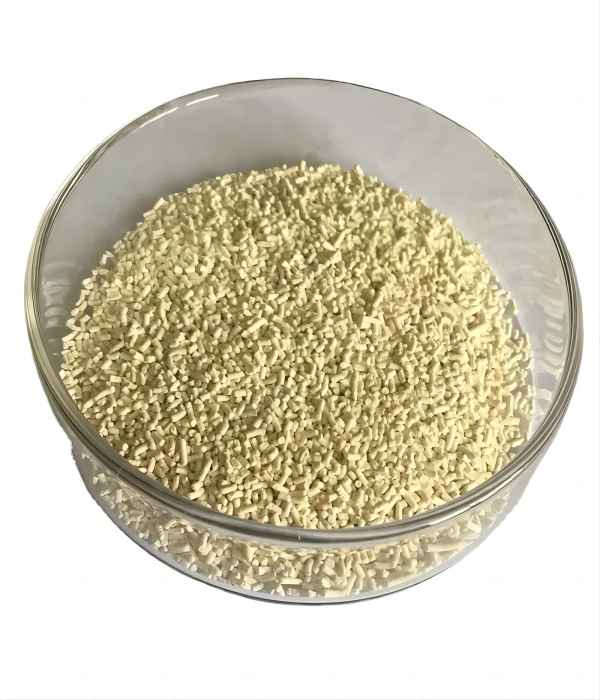
gru . 10, 2024 15:25 Back to list
potassium bicarbonate fungicide
The Role of Potassium Bicarbonate as a Fungicide
In the quest for effective and environmentally friendly agricultural practices, potassium bicarbonate has emerged as a promising alternative fungicide. As a naturally occurring compound, this substance is gaining popularity among organic farmers and home gardeners alike due to its efficacy in combating fungal diseases while posing minimal risks to human health, pets, and beneficial insects.
Understanding Potassium Bicarbonate
Potassium bicarbonate (KHCO₃), a potassium salt of bicarbonate, is a white crystalline powder that is highly soluble in water. It is widely recognized for its use in baking and as a food preservative, but its fungicidal properties are increasingly being recognized in agricultural applications. This compound works primarily through a unique mechanism it disrupts the cell membrane of fungal cells, leading to their dehydration and eventual death.
Fungicidal Properties
Potassium bicarbonate is effective against various fungal pathogens, including powdery mildew, downy mildew, gray mold, and other common plant diseases. When applied to affected plants, it forms a protective barrier that inhibits spore germination and mycelial growth. The effectiveness of potassium bicarbonate can be attributed to its alkaline nature, which alters the pH on the leaf surface, creating an environment that is less conducive to fungal development.
One of the significant advantages of potassium bicarbonate is its rapid action. Unlike some chemical fungicides that require time to penetrate and act against pathogens, potassium bicarbonate often shows results within 24 to 48 hours of application. This rapid response can be crucial during a fungal outbreak, allowing for swift intervention to protect crops.
Application and Usage
potassium bicarbonate fungicide

When using potassium bicarbonate as a fungicide, it is essential to follow specific guidelines to achieve optimal results. Generally, it is recommended to apply the compound as a foliar spray, ensuring an even coating on the plant's foliage, particularly on the undersides of leaves where fungal spores can often be found. Mixing potassium bicarbonate with water and adding a few drops of a non-ionic surfactant can enhance its efficacy by improving adherence to plant surfaces.
Regular applications may be necessary, especially during periods of high humidity or when fungal diseases are prevalent. Farmers and gardeners should monitor environmental conditions and plant health to determine the frequency of application. Moreover, while potassium bicarbonate is considered safe for most plants, conducting a small test patch is advisable to ensure compatibility.
Environmental Benefits
One of the appealing aspects of potassium bicarbonate as a fungicide is its low toxicity to humans, animals, and beneficial organisms. Unlike many synthetic fungicides that can persist in the environment and cause harm to non-target species, potassium bicarbonate breaks down into harmless byproducts. This characteristic aligns well with organic farming principles, making it a suitable choice for those seeking sustainable agricultural practices.
Furthermore, the use of potassium bicarbonate can contribute to reduced chemical runoff in waterways, thus minimizing the environmental impact associated with traditional fungicides. Its minimal residual effects make it a responsible choice for those concerned about the health of ecosystems and biodiversity.
Conclusion
Potassium bicarbonate holds significant promise as an effective and environmentally safe fungicide against a wide range of fungal pathogens. Its rapid action, ease of application, and minimal toxicity make it an attractive option for both professional growers and hobbyists. As the agricultural industry increasingly shifts towards sustainable practices, potassium bicarbonate represents a vital tool in the toolkit of organic fungicides. By embracing such alternatives, growers can not only protect their crops but also ensure the long-term health of the environment. Given the pressing challenges of climate change and ecological degradation, the importance of finding solutions that harmonize agricultural productivity with environmental stewardship cannot be overstated.
-
Azoxystrobin: Broad-Spectrum Fungicide Solutions
NewsAug.11,2025
-
Best EPA Boscalid: Superior Crop Fungicide for Max Yields
NewsAug.11,2025
-
Best Willowood Imidacloprid: Superior Pest Control Solutions
NewsAug.10,2025
-
Best EPA Boscalid Fungicide: Ultimate Crop Protection
NewsAug.09,2025
-
Cyprodinil Fungicide: Broad-Spectrum Crop Protection
NewsAug.08,2025
-
Tembotrione Herbicide: Advanced 8% OD for Broad Spectrum
NewsAug.07,2025
